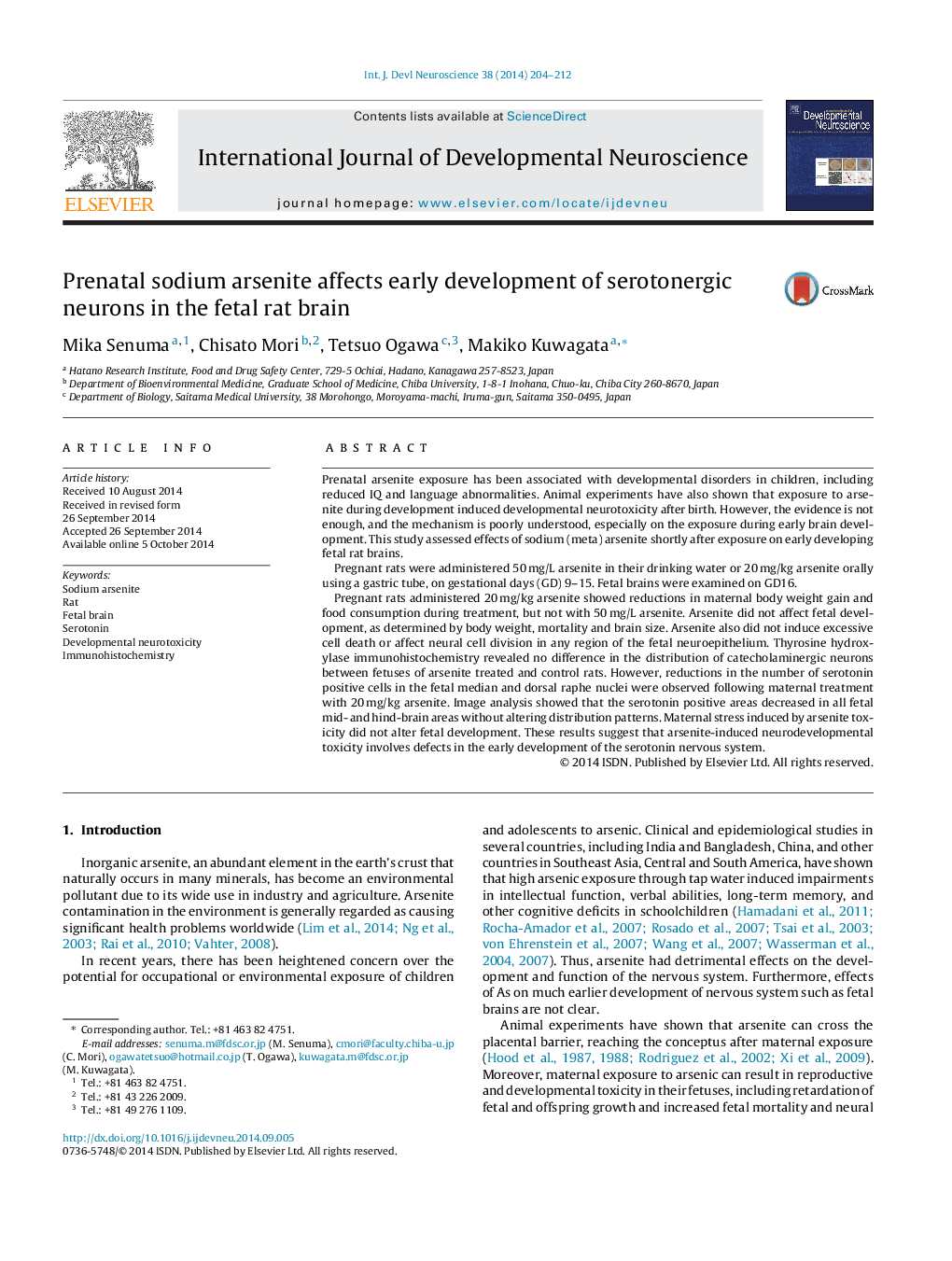| Article ID | Journal | Published Year | Pages | File Type |
|---|---|---|---|---|
| 2785970 | International Journal of Developmental Neuroscience | 2014 | 9 Pages |
•Arsenite has been found to induce neurodevelopmental disorders in humans and animals.•Arsenite was administered to pregnant rats on gestational days 9–16.•The effects of arsenite shortly after exposure on fetal brain development were examined.•Arsenite reduced serotonin positive cells in the median and dorsal raphe nuclei.•Arsenite induces defects in the early development of the serotonin nervous system.
Prenatal arsenite exposure has been associated with developmental disorders in children, including reduced IQ and language abnormalities. Animal experiments have also shown that exposure to arsenite during development induced developmental neurotoxicity after birth. However, the evidence is not enough, and the mechanism is poorly understood, especially on the exposure during early brain development. This study assessed effects of sodium (meta) arsenite shortly after exposure on early developing fetal rat brains.Pregnant rats were administered 50 mg/L arsenite in their drinking water or 20 mg/kg arsenite orally using a gastric tube, on gestational days (GD) 9–15. Fetal brains were examined on GD16.Pregnant rats administered 20 mg/kg arsenite showed reductions in maternal body weight gain and food consumption during treatment, but not with 50 mg/L arsenite. Arsenite did not affect fetal development, as determined by body weight, mortality and brain size. Arsenite also did not induce excessive cell death or affect neural cell division in any region of the fetal neuroepithelium. Thyrosine hydroxylase immunohistochemistry revealed no difference in the distribution of catecholaminergic neurons between fetuses of arsenite treated and control rats. However, reductions in the number of serotonin positive cells in the fetal median and dorsal raphe nuclei were observed following maternal treatment with 20 mg/kg arsenite. Image analysis showed that the serotonin positive areas decreased in all fetal mid- and hind-brain areas without altering distribution patterns. Maternal stress induced by arsenite toxicity did not alter fetal development. These results suggest that arsenite-induced neurodevelopmental toxicity involves defects in the early development of the serotonin nervous system.
